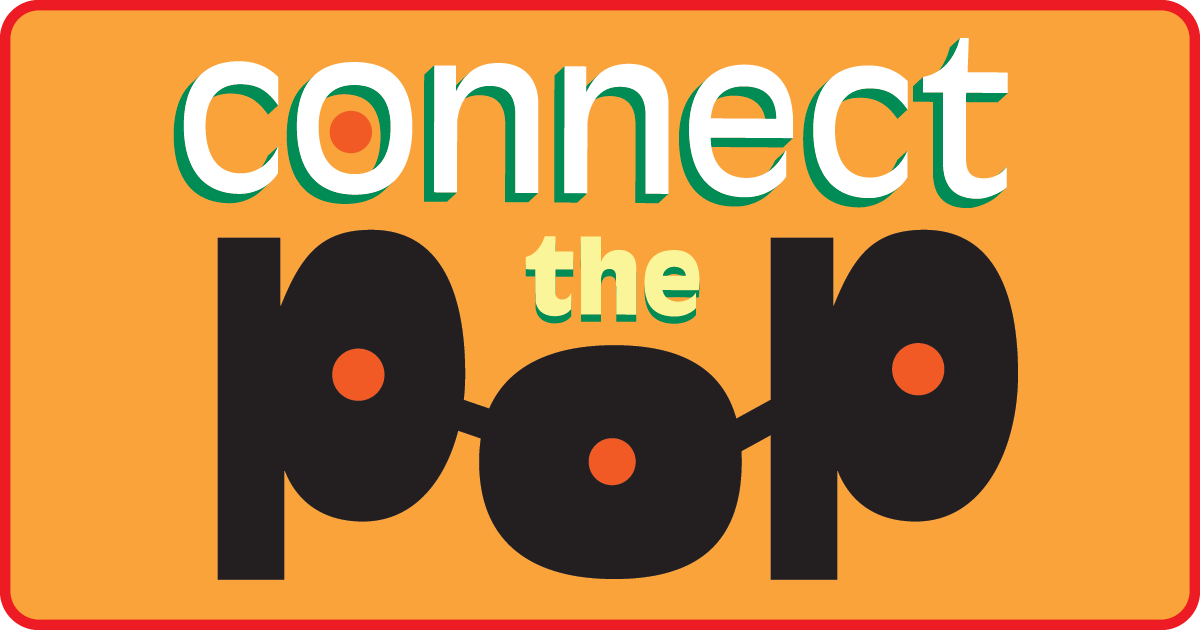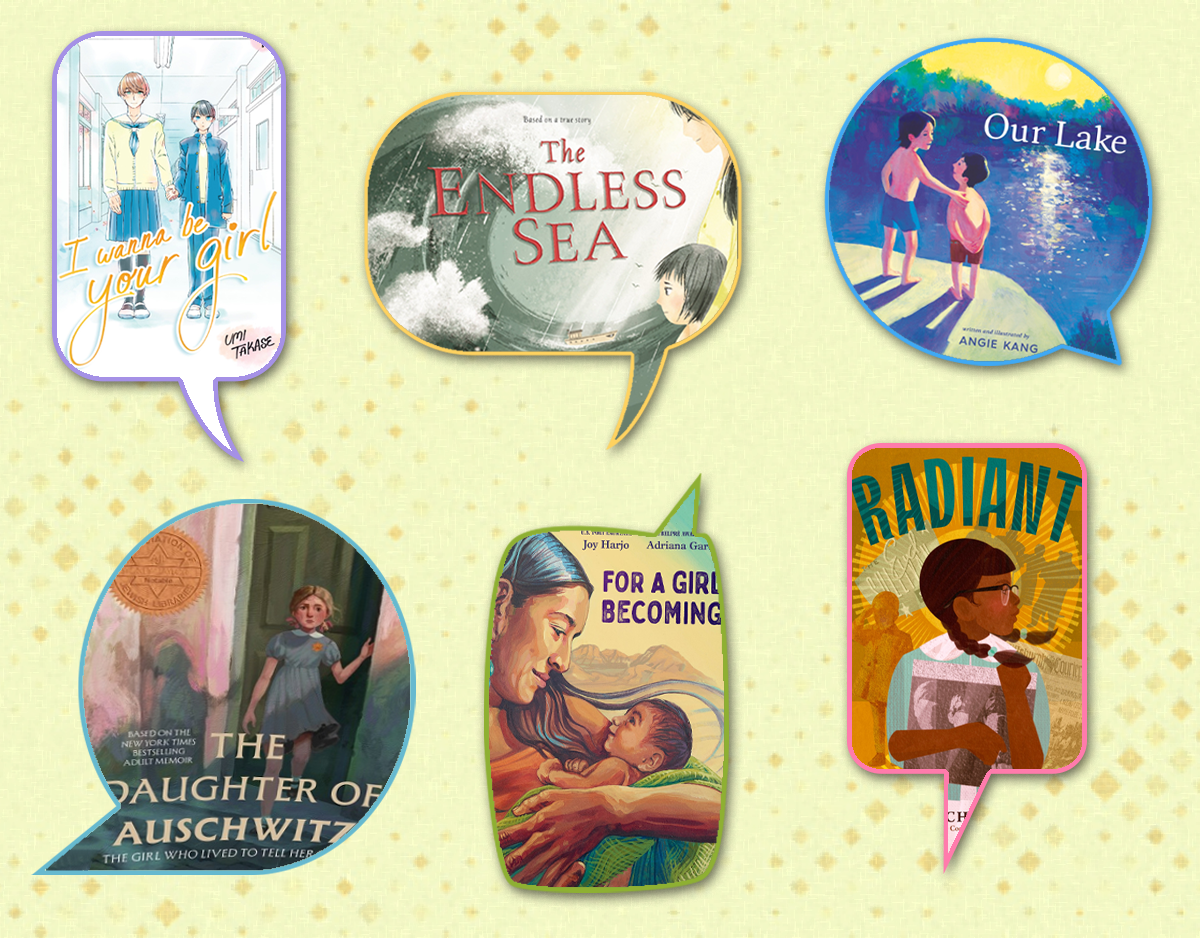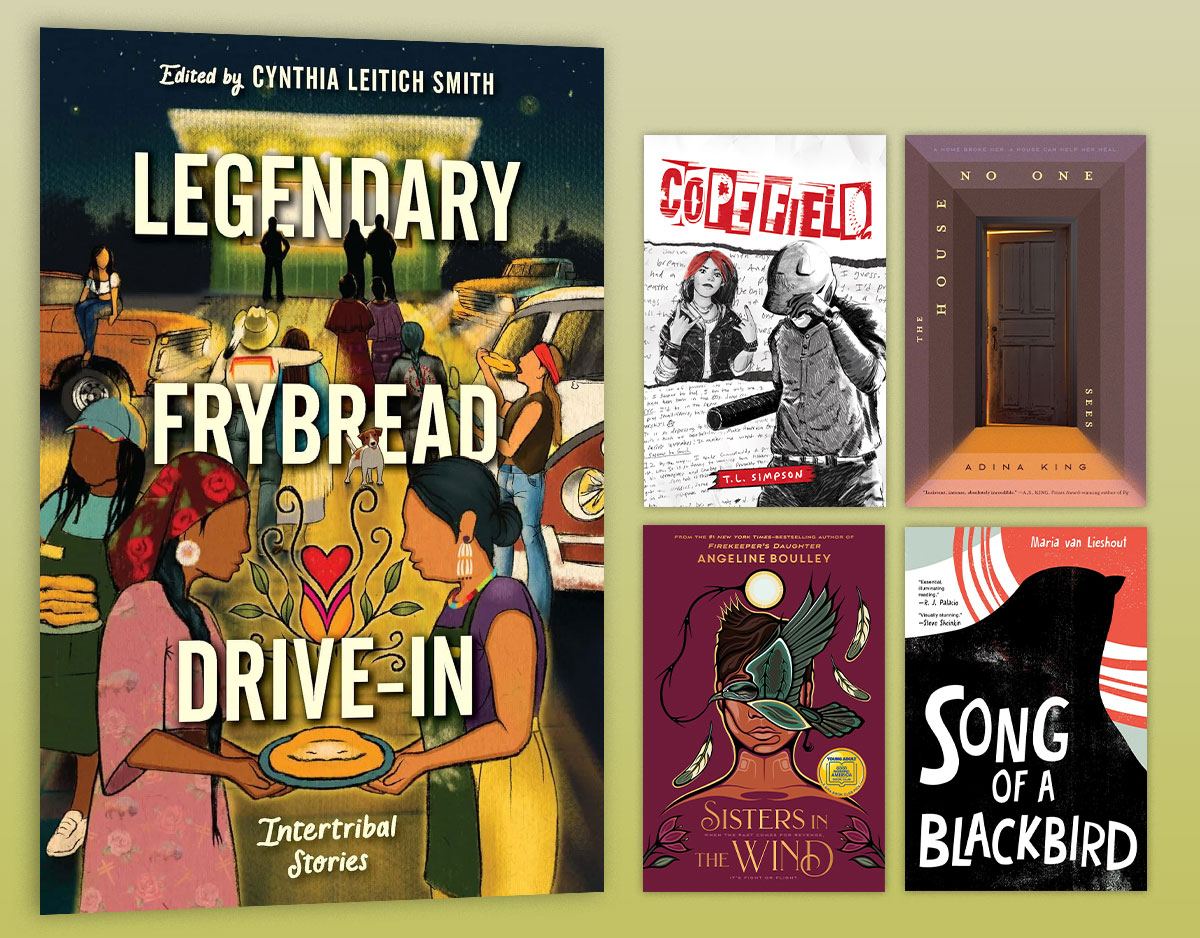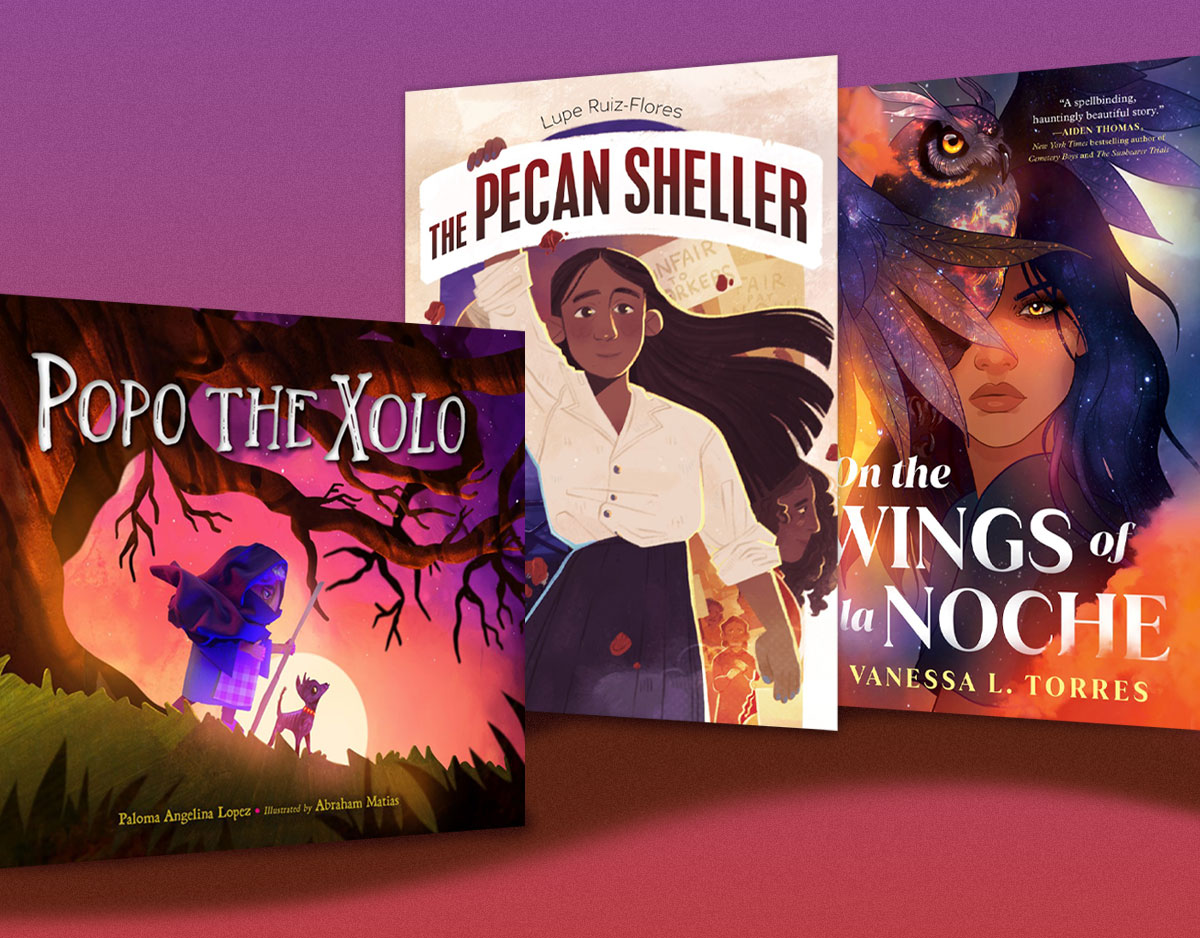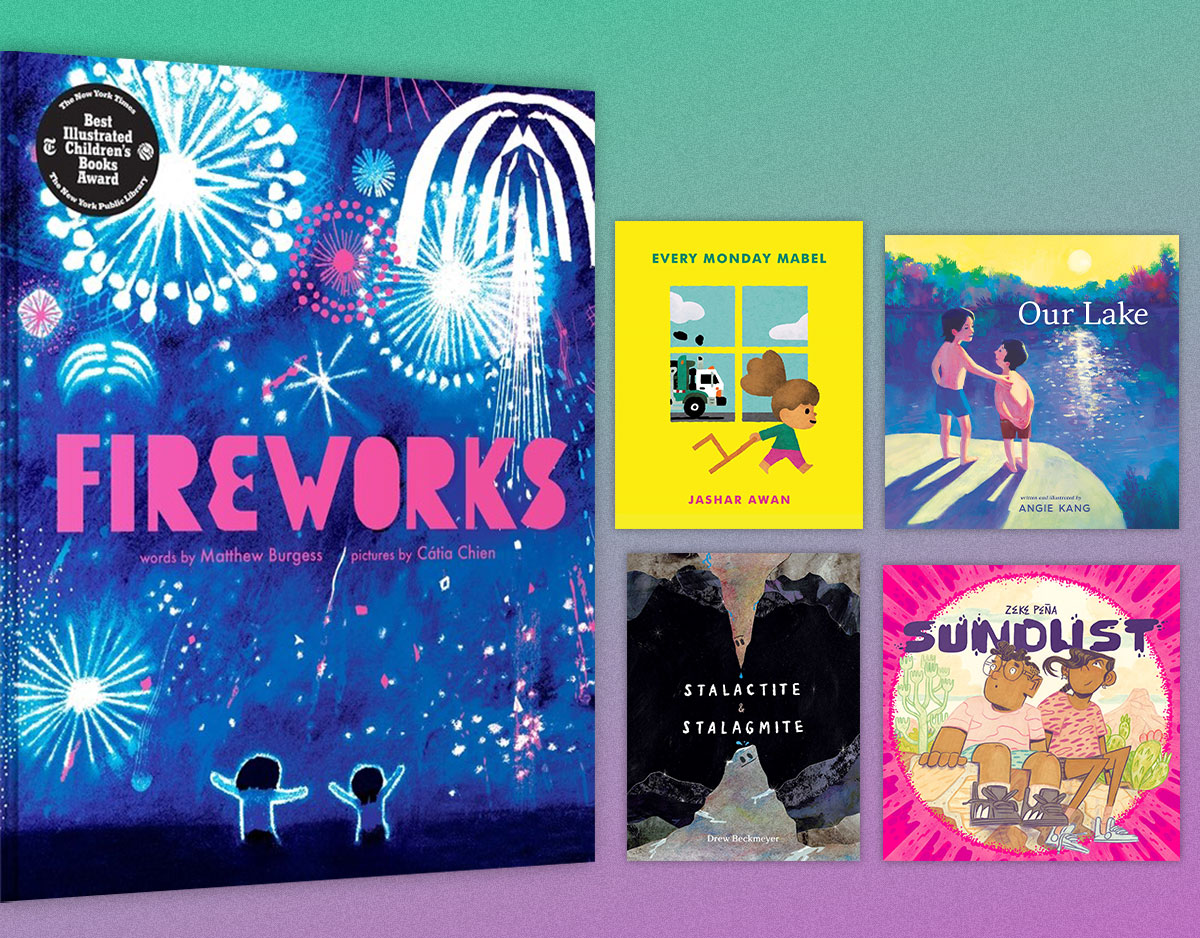SCROLL DOWN TO READ THE POST
Mighty, Mighty Mythology: The George O’Connor Interview

If you ever needed any validation of the versatility and enduring appeal of Greek mythology, just crack open any of George O’Connor’s “Olympians” titles. While each of the four books to date spotlights a particular god or goddess, what’s amazing is how much else is covered—we get heroes, backstories, and tangential plotlines that together weave a narrative tapestry that’s as rich as it is accessible. Just as impressively, O’Connor’s approach comprises styles and modes as diverse as fine art (a kind of visual poetry, really), sword-and-sandal adventure yarns, and contemporary fiction. Oh, and did I mention that the books are page-and-panel annotated in the backmatter, so that, yes, there’s a lot of opportunity for explicit learning… in addition, of course, to all the other learning that takes place invisibly.
So to kick Connect the Pop’s series of mythology posts into high gear, I decided to chat with this thoughtful creator, who—no surprise—also happens to know his pop culture.

Both as a creator who does a lot of research and as a fan yourself of classical mythology, are you surprised by all the ways that the key characters have been represented?
ADVERTISEMENT
ADVERTISEMENT
No, I’m not surprised at the diversity of ways that the Gods and Heroes have been portrayed in art, literature and pop culture. They’re very strong archetypes, such powerful avatars of story and imagination, that it only makes sense that they be interpreted in so many ways. If anything, I tend to feel that the characters are, in most modern depictions, mere caricatures of all that they were in the original myths. In the vast majority of modern interpretations, we only see the tip of the iceberg.
One of the things that I was impressed by in Hades: Lord of the Dead was how the tone becomes, very naturally, kind of YA-ish. But that leads to a question of who these myths are really for. That is, were there certain themes or story elements that you had to be careful with regarding a kid/teen readership?

Thanks for asking this question. The original myths can be pretty adult—they’re chock-full of sex and violence, of every imaginable kind. And while they were definitely meant to entertain, they were also meant to explain things about the world around us, and why it is the way it is. I don’t know if the ancient Greeks had tamer versions of their stories that they would tell to their kids or not, but I do try to make each volume of Olympians a good read for all-ages. Not by sanitizing or censoring it, but merely be being careful of how I tell it. In Zeus: King of the Gods, when Kronos the Titan castrates his father, Ouranos the Sky, I don’t depict it by having Kronos whacking his father in the groin with a sickle. I chose to not anthropomorphize Ouranos, just drawing him as a starry night sky that Kronos slices open, with light spilling out. The accompanying text reads “Ouranos was wounded and rendered impotent. His powers seeped away into his sons.” Little kids aren’t going to understand that they just witnessed a castration, but the older kids and adults will. Writing for all ages.
When I was a kid, most mainstream comics were made for all-ages—you’d pick up an issue of, say, The Amazing Spider-Man, and there would be stuff in there for the kids, and there would be things in there for the adult audience as well. By and large, most mainstream comics have abandoned the child audience, which I feel is a real shame. Kids are out there seeing superhero movies, but if they try to read those comics, well, very often they’re not going to find something that’s age-appropriate.
What’s your favorite, or least favorite, of the more recent pop culture incarnations of the Greek gods and heroes?
I’ll answer this both ways—my favorite and least favorite depictions. I’ll start with my least favorite—I thought that the 2010 remake of Clash of the Titans was really, really awful—literally the worst film I saw that year. Mythologically speaking, the film was completely, totally inaccurate, but that’s why not why I disliked it so intensely—Hollywood is going to change any story as they see fit, to make what they think is a better movie, so mythological inaccuracy doesn’t tend to bother me. As long as they capture the feeling, the essence of a story, I’m cool with changes, but that film somehow managed to capture none of the grandeur of the original myths or the cheesy fun of the 1981 original. And the 3D conversion was terribly done.
Whoa, that’s a lot of venom! On the ‘I liked it’ side of things, even though it was even more mythologically inaccurate than Clash of the Titans, I quite enjoyed Immortals, because at least it captured some of the beauty and grandeur of the Olympians. And I would be remiss without a shout-out to Rick Riordan and everything he’s accomplished with the Percy Jackson novels—a lot of the current interest in Greek mythology comes from what he started. Plus, he knows his mythology! I love the epic battle between Kronos and his son that ends Zeus: King of the Gods—to me it had all the excitement of something like Silver Surfer fighting Galactus. So how front-of-mind for you is the similarity to superhero comics, and is that something you wanted to depart from, play up, or what?
I love the epic battle between Kronos and his son that ends Zeus: King of the Gods—to me it had all the excitement of something like Silver Surfer fighting Galactus. So how front-of-mind for you is the similarity to superhero comics, and is that something you wanted to depart from, play up, or what?
Wow, you’re a real superhero fan, alright! The classic Galactus/Surfer fight was a definite influence on my depiction of the Zeus/Kronos war. An even more direct inspiration on that scene was the classic battle between Thor and the World Serpent, Jormungand, from Walt Simonson’s run on The Mighty Thor. The panel where a lightning-charged Zeus gets knocked into a mountaintop (which then explodes) was a deliberate nod to a page from Simonson’s depiction.
To my mind, superhero comics have always been about mythology—the larger than life adventures of Superman and company are direct descendants of the stories of Heracles and Samson. With Olympians, I wanted to retell these very old stories, the bedrock of western literature, in a style that pays homage to the modern format most closely related to them—superhero comics.
It’s great how the Hera book fully incorporates the labors of Heracles. And while I know that’s mentioned on the cover, what are your thoughts about gender and target audience? For example, have you gotten any unexpected, or gratifying, feedback from boys or girls about the series?
ADVERTISEMENT
ADVERTISEMENT
I know that, at least initially, [publisher] First Second was a little wary about having the third volume of Olympians be about another goddess (following Zeus and Athena), and that is why Hera: The Goddess and Her Glory had that little extra bit of cover copy spotlighting Heracles. To their credit, though, they’ve let me go with the order I wanted to tell the stories, and for that I’m incredibly grateful.
In much the same way I try to make every volume of Olympians an all-ages read, I try to make it an all-gender read as well. Right from the beginning, when I first pitched the series, I knew that I wanted to have the second book be about Athena, and get that awesome, kick-butt female up there right away.
I don’t have anything concrete to offer up about the numbers of who buys more of my books, boys or girls, but I will say that I get a lot more fan mail from girls. Maybe that says something more about the nature of girls versus boys, that girls are more likely to write to an author, but I do know that there is a significant portion of my readership that is female, which makes me very happy. That being said, I received an email from a little boy just this morning that says that Athena is his favorite book, so hopefully that means I’m doing something right.
Thanks for all your time. Care to tell readers what I’ve pulled you away from—what’s next or coming up on the horizon from you?
Well, I’m just slapping the final coloring touches on the fifth volume of Olympians, Poseidon: Earth-Shaker, and I’m writing the first draft of volume six, all about Aphrodite, the Goddess of Beauty and Love. I’ve also been illustrating a new series of young reader books that’s just coming out from Simon and Schuster called Captain Awesome—that’s been great fun. And I have a couple of picture books that I’m working on as well from Candlewick Press. I’m also hoping at some point to take a nap eventually.
Filed under: Comics, English, Movies, Transliteracy, YA Literature
About Peter Gutierrez
A former middle school teacher, Peter Gutierrez has spent the past 20 years developing curriculum as well as working in, and writing about, various branches of pop culture. You can sample way too many of his thoughts about media and media literacy via Twitter: @Peter_Gutierrez
ADVERTISEMENT
SLJ Blog Network
The 2026 Newbery Bump
It’s a Belgian Cover Reveal Day! A Talk with Leo Timmers About Kiki & Me
A Kid Like Me | Review
Goodbye for Now
Penguin Young Readers Showcase: February 2026 Books
The Classroom Bookshelf is Moving
Elisha Cooper Visits The Yarn!
ADVERTISEMENT
ADVERTISEMENT

